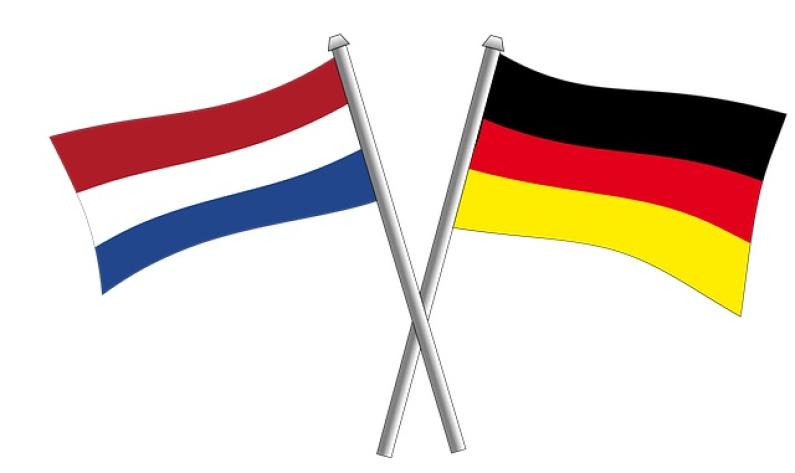
The border between Germany and the Netherlands is 567 kilometres long and even though opinions vary about the exact course of the line around the Ems River and its sunken coast, the two countries are very friendly. Since 1960, an equalisation treaty between Germany and the Netherlands has regulated the rest of the border, and a separate agreement is in place that applies to shipping traffic.
Residents on both sides regularly travel across the border and they are also very close in terms of language. The linguistic roots of both countries lie in West Germanic, and Low German is the same dialect spoken in the east of the country as it is in northern Germany. Nevertheless, there are stumbling blocks in everyday life between the neighbours, which cause minor communication problems.
The languages: Dutch and German
Dutch is very similar to German, especially with regards to vocabulary, but the grammar is very different. It could be argued that Dutch has developed further and has become more simplified. The difference between the two languages is very clear when you look at the four cases. Germans use the nominative, genitive, dative and accusative cases, whereas the Dutch now do not use any of the cases. They are only used in fixed combinations, such as when expressing time or in idioms.
Small talk and addressing people
The basic tone of the Dutch language is one of politeness, even if it is actually meant very directly. If a Dutch person wants a window in a room to be closed, he will say: "Waarom staat het raam open?" (Why is the window open?), instead of directly asking if the window can be closed as a German person would do.
This polite and reserved way of communicating is also used by the Dutch in business. People like to get to know people first, making small talk before moving on to the important business topics.
The Dutch are laid-back but still follow unwritten rules
From the Germans' point of view, the Dutch appear to be laid-back in business and they give the impression that they don’t particularly follow hierarchal structures. However, there are definitely various unwritten rules that every Dutch person knows and follows. In essence, a boss in the Netherlands is a colleague who is responsible for other tasks. This enables individual employees to have a greater say and therefore, meetings can take longer than in Germany. However, in the end a consensus is reached that everyone can support equally.
In the Netherlands people start something and see where it takes them, whereas in Germany people plan
The Dutch have a simple motto: let's get started and see where it takes us, but Germans like to plan a project down to the last detail before they take any practical steps. The way in which Germans make detailed planning in writing first, surprises the Dutch initially, because they like to solve problems together as and when they arise.
FAQ on cultural differences between Germany and the Netherlands
Are there differences in training?
In Germany, companies and local schools provide training in the so-called dual vocational training system (programmes consist of theoretical as well as practical elements). In the Netherlands, apprentices attend large vocational training centres and complete work placements in various companies during their time at school.
What is the favourite food of the Dutch?
Dutch food can best be described as filling and hearty and needs to provide energy. Breakfast in particular is rich, while snacks like bitterballen (deep-fried beef) are substantial enough to be eaten instead of lunch. The Dutch tend to cook only in the evening and then, especially during the cold season, they often make stamppot (stew) and a sweet dessert to round off the day.
Why do most Dutch people speak perfect English?
Dubbing English language films is common in Germany. In the Netherlands, people use subtitles instead. Because of this, the Dutch start to learn English at an early age, so become fluent early on.
Comments
Hi
As an overseas person i live in the caribbean HAITI,means in the central of the America sea...but i am really interested in the foreign languages,so i've been learning Dutch for basicaly almost 6 months,but after i've readed the publishing between the 2 countries,so i would like to ask if i could switch to Germanie instead of Dutch?
Thank you!
German and Dutch are very similar with Dutch grammar being less difficult than German, however, I find the pronunciation of standard German easier than standard Dutch.
Add new comment